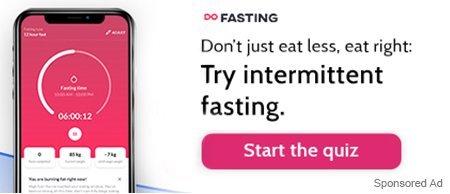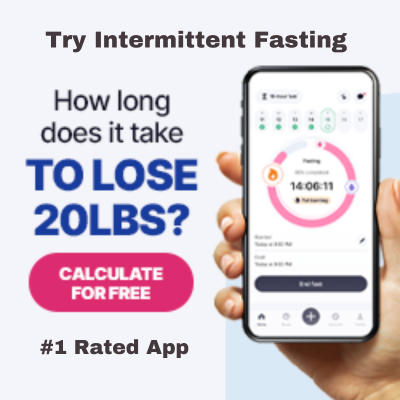What Is Apple Cider Vinegar | Does apple cider vinegar break a fast | Benefits | How to use
Let’s help you determine the Best Time to Drink Apple Cider Vinegar While Intermittent Fasting by Doctors? In the recent decades apple cider vinegar has become a wellness and weight loss world trend. Proponents claim it has all sorts of positive benefits like helping kill harmful bacteria, reducing inflammation, promoting weight loss or even slowing down aging.
Yet if you’re doing intermittent fasting you might be wondering: “Can I use apple cider vinegar while intermittent fasting?”. Lucky for all the apple cider vinegar fans the answer is: “Yes, you can!”.
However, there are a few things to note before you add apple cider vinegar to your daily intermittent fasting routine. We will look at the frequently asked questions about fasting and apple cider vinegar in our article.
What Is Apple Cider Vinegar?
Apple cider vinegar (ACV) is a popular health tonic that has been used for centuries as a natural remedy for a variety of ailments and has incredible health benefits. ACV is made by fermenting apples and apple juice with yeast and bacteria, which converts the natural sugars in the apples into acetic acid in the fermentation process. Acetic acid is the main active ingredient in ACV and is responsible for its many health benefits.
When looking for apple cider vinegar you might come across two apple cider vinegar types. Most store-bought apple cider vinegars have been filtered – they look a little lighter and don’t contain any bits floating in it.

The other type is what’s called apple cider vinegar with “mother”. It’s organic, unfiltered and contains a substance called “mother”. It consists of bits of proteins, enzymes, and gut-friendly probiotics or, more specifically, acetic acid bacteria that also gives this type of apple cider vinegar a cloudy appearance.
It’s entirely up to you which type of apple cider vinegar to choose. While some people believe that the “mother” is responsible for most of apple cider vinegar’s health benefits, there is currently no scientific evidence to support that.

Can You Use Apple Cider Vinegar While Intermittent Fasting? Will Apple Cider Vinegar Break your Fast?
The short answer is that: Yes you can, apple cider vinegar won’t break your fast. However, it depends on two factors: how much apple cider vinegar you are using and what type of fast are you following.
If you are sticking to a strict fasting schedule that doesn’t allow any calories during the fasting window, you might prefer to stay away from any drinks, additives and supplements other than plain water. A cup of coffee contains around 5 calories, tea has around 2 and fruit infused water can add up a few calories as well. When it comes to apple cider vinegar – 1 tablespoon is 3 calories.
Having said that, these couple of calories won’t interfere with your fast much and therefore most people allow themselves at least a cup of black coffee or plain tea during the fasting window. This makes 1-2 tablespoons of apple cider vinegar diluted in water a great option to have during your fasting window.
1 – 2 tablespoons per day is also the recommended dosage and best way to take apple cider vinegar. If you stick to that amount you shouldn’t worry about combining intermittent fasting and apple cider vinegar. Does apple cider vinegar break a fast? NO! It has amazing benefits!
Benefits of Drinking Apple Cider Vinegar During Your Fast
Now when we have cleared any doubts about having apple cider vinegar during the fasting window, we can look at whether there are actually any benefits of going for that apple cider vinegar water.
If you’re doing intermittent fasting it’s very likely you’re doing it with the goal of losing or maintaining weight.
Clinical trials have shown that one of the most well-known benefits of ACV is its ability to help regulate blood sugar levels. Scientific evidence suggests that acetic acid can improve insulin sensitivity and insulin response, which helps to lower blood sugar levels. This can be especially beneficial for people with type 2 diabetes or those who are at risk of developing the condition. Blood sugar control and blood glucose level stability have shown benefits with ACV.
Can You Use Apple Cider Vinegar While Intermittent Fasting and does it help boost your weight loss goals?

It would be nice to have a glass of water with a tablespoon or two of magic vinegar and – voila! – your weight would start to magically disappear. Unfortunately, no such a liquid exists and apple cider vinegar is no exception.
Apple cider Vinegar is also well-known as a cure or remedy for Acid Reflux, I use it myself and it works wonders to keep my Acid Reflux in check. Read more on our Guide to Cure GERD.
The evidence for apple cider vinegar has weight loss benefits is limited. A small study has concluded that one tablespoon of apple cider vinegar consumed twice daily with meals combined with a calorie-restricted healthy diet and exercise results in more weight loss than diet and exercise alone. However, more research is needed to confirm these results.
Even if apple cider vinegar won’t be the magical potion to make weight disappear, it can possibly help improve digestion. It has been shown to reduce gas by providing enzymes to help with digestion.
Additionally, apple cider vinegar has appetite-suppressing effects slowing the rate at which food leaves your stomach. Sounds promising for anyone looking to extend their fast.
Studies also show that taking ACV will provide benefits to your immune system as well, with reports of less sickness, and shorter duration of illnesses.
Also, let’s not forget that a glass of water (with or without apple cider vinegar) will help you feel more full and stay hydrated which is essential not only for weight loss but your general well being. Drinking plenty of water is especially crucial during your fasting window – it can help avoid many intermittent fasting side effects and successfully survive your fast.

Best Time to Drink Apple Cider Vinegar While Intermittent Fasting by Doctors?
Don’t make the mistake of drinking apple cider vinegar straight up. It is highly acidic and can cause problems, like eroding the enamel of your teeth or causing stomach burn. Leave undiluted apple cider vinegar to make an all-purpose cleaner. Even in that case it’s recommended to dilute it with water.
You should also consume apple cider vinegar in moderation. 15 – 30 milliliters (ml) or 1 – 2 tablespoons of apple cider vinegar daily in a glass of water is usually enough for a person to see potential health benefits.
Another way to use ACV is by incorporating it into your meals. ACV can be used as a salad dressing or added to marinades, sauces, and soups to add a tangy flavor. When using ACV in cooking, it is best to choose high-quality, raw, unfiltered ACV to get the most health benefits. While there is no specific time of day that is best for using ACV, many people find that consuming it on an empty stomach in the morning is the most effective way to experience its health benefits. However, if you find that consuming ACV first thing in the morning is not practical, you can also consume it before meals or at other times throughout the day.
You can consume this daily tablespoon or two of apple cider vinegar in various ways. Here are some ideas:
- Dilute it in water. This might be the most common and best way to consume apple cider vinegar. Just mix 1 – 2 tablespoons of apple cider vinegar in a glass of water and enjoy your intermittent fasting friendly drink. As we concluded before – it can be enjoyed both during the fasting and eating hours.
- Make salad dressing. Just add a tablespoon or two to your salad or mix with olive oil, lemon or any other of your favorite ingredients.
- Use it for marinades. Apple cider vinegar is a popular ingredient in many steak marinades. It gives meat a nice sweet-and-sour flavor. Try mixing apple cider vinegar with garlic, oil, soy sauce, onion, and/or cayenne pepper to give meat (or tofu, if you’re vegetarian) a delicious flavor.
- Add to other drinks. If you’re not a fan of the taste but still would like to enjoy some of the benefits, try adding apple cider vinegar to other drinks like tea, juice or smoothie.
If you’re looking for a different way to add some flavour to your fasting hours try apple cider vinegar gummies. These ones have also added a jolt of vitamins B6, B12, and folic acid to your blood cells and boost your metabolism.

Conclusion – When to Drink Apple Cider Vinegar While Intermittent Fasting?
Personally, I love apple cider vinegar. I will often take a shot in the morning due to its benefits. I will also take it to help with acid reflux and other health issues. I know it can be tough to swallow, but dilute it in a small amount of water to make it go down easy.
In conclusion, anytime is a good idea, and will not break your fast. incorporating apple cider vinegar (ACV) into your fasting routine can have a number of health benefits. ACV contains acetic acid, which has been shown to improve insulin sensitivity and regulate blood sugar levels, making it a valuable tool for managing insulin resistance and type 2 diabetes. Additionally, ACV consumption has been shown to support a healthy immune system, promote weight loss, and improve digestion.
Intermittent fasting, combined with ACV consumption, can be an effective way to achieve your health and weight loss goals. While more research is needed to fully understand the effects of ACV on fasting, the existing scientific evidence suggests that it may be a safe and effective natural remedy for supporting overall health and wellbeing.
Incorporating ACV into your diet, whether as a fasting aid or as a daily supplement, is a simple and cost-effective way to support your health. When choosing ACV, it is important to choose a high-quality, raw, unfiltered product to get the most health benefits. As with any dietary supplement, it is important to speak with your healthcare provider before adding ACV to your diet to ensure that it is safe and appropriate for your individual health needs. Ultimately, ACV can be a valuable part of a healthy diet and lifestyle.
I hope you enjoyed our article – When to Drink Apple Cider Vinegar While Intermittent Fasting? Read more articles like this here on our Intermittent Fasting Blog.
Need an APP on your Mobile to help with Fasting? See our Top 6 FREE and Premium Fasting Apps
Want to know what you can Drink While Fasting? What Can You Drink during Fasting Page











